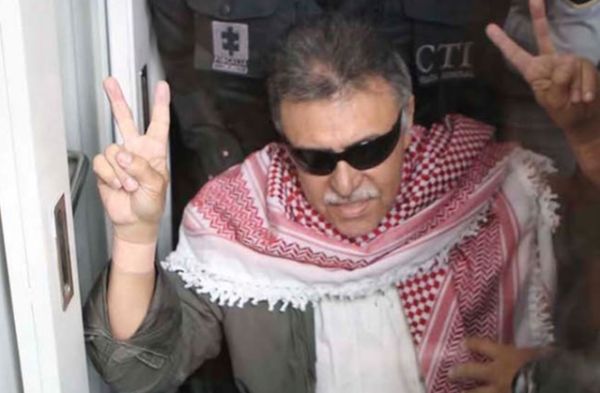
Colombia’s Prosecutor office announced Thursday the release of Jesus Santrich, less than a day after the country’s Supreme Court ordered his release, the latest development in a legal saga concerning his detention and possible extradition to the United States.
From prison, Santrich went to the headquarters of the People’s Alternative Revolutionary Force of Colombia (FARC). They will give a press conference soon from the headquarters.
After that, he will go to the Colombian Congress to take his position as an elected lawmaker.
Seuxis Paucias Hernandez, better known as ‘Jesus Santrich’, a former guerilla leader was arrested in Bogota April 9, 2018, following an extradition request from the United States Department of Justice (USDOJ) for alleged drug trafficking.
This crime, according to U.S. authorities was committed after he, as part of the now-disarmed FARC, and President Juan Manuel Santos signed the nation’s peace deal Nov. 24, 2016, which would be in violation of the accords, which state that such crimes would be dealt as part of the special tribunal JEP only if they were committed before the signing of the agreements.
Santrich and his party have maintained that no such crime was committed after the 2016 agreement and that the FARC leader has congressional immunity and could not be prosecuted under by normal courts.
The JEP had already come out against Santrich’s arrest and called for his release.
The top court blamed the Colombian prosecutor’s office’s incompetence for unfounded arrest and for overlooking Santrich’s congressional immunity.
The high court said that the ex-leader of the FARC has immunity in spite of not having taken office as a congressman and that he can keep his seat in Congress until his extradition process to the United States is resolved.
Referring to the illegal nature of Santrich’s detention, FARC has issued several statements asserting that the peace accord, as well as the Special Jurisdiction for Peace, have been the “subject of multiple attacks meant to undermine their character, limit their scope and ignore their capacities” by the Colombian government.
Since the signing of the agreements in 2016, former FARC members have been facing persecution by right-wing elements and hitmen all over Colombia and being killed at alarming rates despite having laid down their arms in search of peace.
 Escambray ENGLISH EDITION
Escambray ENGLISH EDITION





Escambray reserves the right to publish comments.